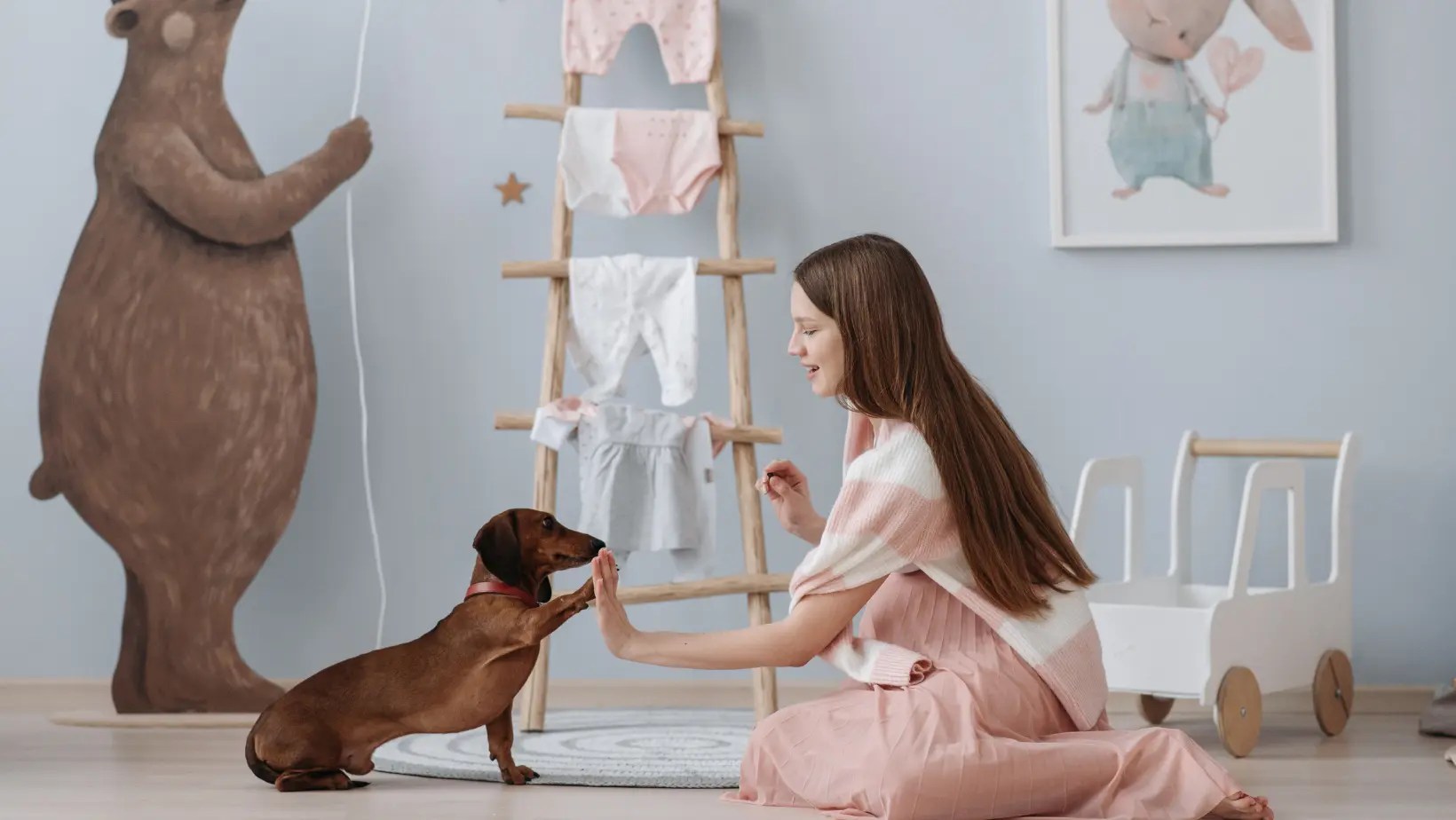Do you have a cat, dog or both at home? Are you expecting your first baby and have questions about preparing your animals who have, until now, been your babies? Well, this is something significant you need to talk about when preparing for childbirth.
How can you help your animals adapt when a baby arrives in the family? Are there risks? Expected reactions? How can you avoid problems between your animals and your baby?
Parents want the best for their child, but they also love their pets. So, how can we ensure safe cohabitation? Avoid having to get rid of the animal you love?
If your pet is a canine, for dogs, because they’re used to living as part of a pack, the arrival of a baby is seen as a new member added to the pack. As long as you adequately prepared them for the baby’s arrival…
Most types of dogs adapt well to the arrival of a baby. It’s their individual temperament that can sometimes be a problem.
To prepare them, during pregnancy you need to change your dog’s meal times, play time, when you do things with it. If you walk them daily, change the time and route you take. If the future mother is the dog’s master, their partner needs to take over during pregnancy to get the animal used to changes in its daily life before childbirth. Have someone sit the dog a couple of times outside of the home to help it adapt to changes in its routine and get it used to being separated from you.
For felines, at the basic level cats are predators, solitary, and a simple change in their routine can really disturb them. During pregnancy, these animals will quickly understand that something is going to change. They’re very close to pregnant women and are curious about new installations in the baby’s room (like the cradle). However, since cats tend to mark their territory by leaving their smell, don’t let them jump in the baby’s crib. If they do, they will want to return, even if the baby is sleeping there. Since cats search out warmth, they will often lay down close to their head, sometimes even on top of it since that is where the baby loses heat. This may suffocate your newborn.
To make the crib unpleasant for your cat, you can place aluminum foil in it. Make sure the shiny side is up so that the cat will be surprised and scared by the sound and reflection it will make when they walk on it. They will simply stop going into the crib. You can also use electrical tape, sticky side up, on the crib. It will stick to the cat if it jumps into the crib, and they will likely screech or leave behind a lump of hair. 😊 Believe me, they will avoid the crib after that! You have to make their experience unpleasant…
If we go back to dogs, during the mother’s hospital stay and childbirth, you should have it taken care of in the home to avoid too much stress when the baby appears in its home. They may see the baby as an intruder in the pack rather than a new member. The father should also bring back a blanket or pyjama the baby used to familiarise the dog with its smell before it arrives at home.
If you have a cat, rub the baby’s blanket or clothing on the furniture or other places that your cat likes to leave behind the baby’s smell.
Don’t forget the video about Domestic Animals and Pregnancy that you can watch at any time. I filmed it with a veterinarian, Isabelle, who was pregnant with her second child.
N’oubliez pas que vous avez une vidéo spécifique Les animaux domestiques et la grossesse que vous pouvez consulter en tout temps, faite avec une vétérinaire, Isabelle, elle-même enceinte de son 2e bébé.
For when your baby arrives in the home, please read my article Dog, Cat and the Return Home, and the other articles that can help with adapting to your new baby.
Pour l’arrivée proprement dite de votre poupon à la maison, je vous invite maintenant à venir lire mon blogue Chien, chat et retour à la maison mais aussi les autres les autres billets pouvant aider l’adaptation.
Talk soon,
Marie
The Baby Expert
Please share your experiences in the comment section.


